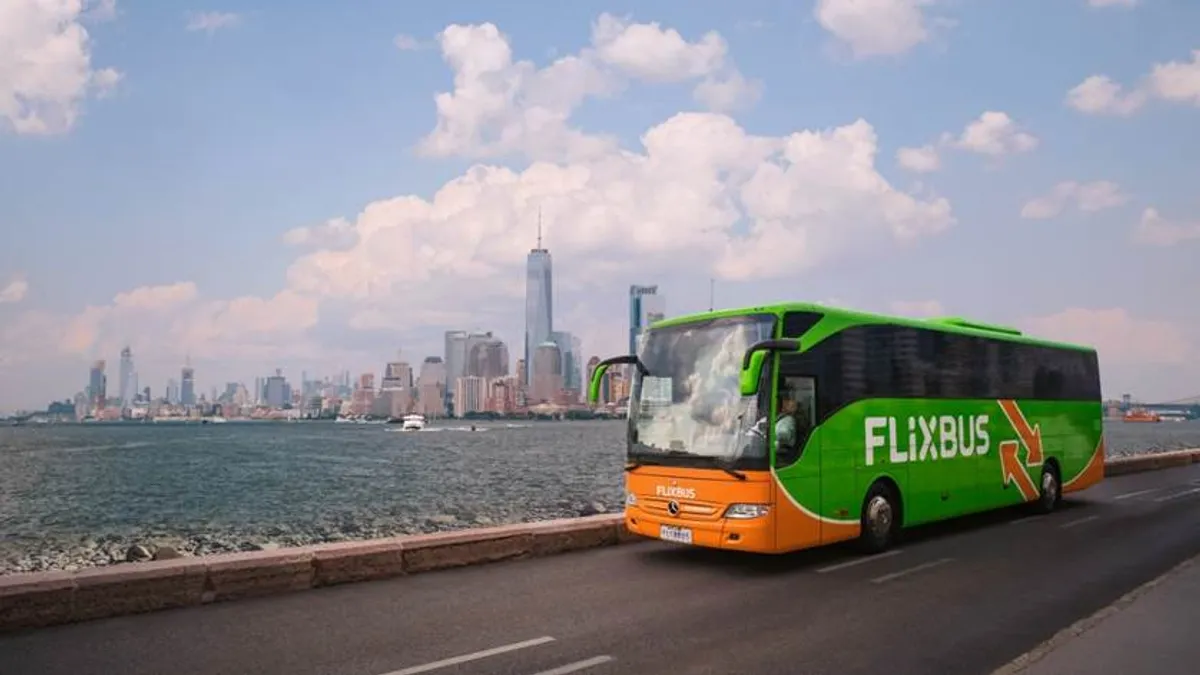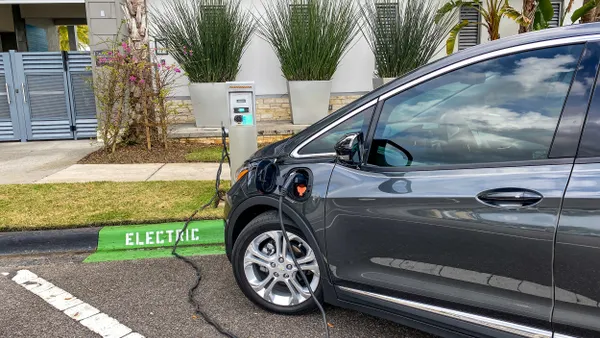Dive Brief:
- European intercity bus company FlixBus announced it has expanded its U.S. presence to the East Coast.
- Routes will connect New York City, Baltimore, Washington, DC and Richmond, VA. The company launched U.S. service one year ago on the West Coast, with routes starting in California and expanding to nine states.
- Passengers can choose to offset their carbon emissions by purchasing "CO2 Compensation" tickets. An extra cost of about 1-3% of a total ticket price will be added to the total and invested in the National Forest Foundation and "a second and certified Global Climate Protection Project from abroad," the company's website explains.
Dive Insight:
Long-distance coach bus service has existed for about a century, with Greyhound Lines and Peter Pan Bus Lines founded in 1914 and 1933, respectively. The service has changed since that time in operations and the types of vehicles used, but the concept has remained the same: provide a relatively reasonable way for a group of passengers to travel between cities.
As noted in a federal report, the U.S. intercity bus market changed considerably between 1995 and 2008. A lot of new players entered the market — such as Megabus and BoltBus — and revolutionized the industry with new amenities such as onboard Wi-Fi and modernized ticketing processes, such as mobile phone accessibility.
Long-distance bus service ebbs and flows in popularity based on a variety of societal and economic factors. Another federal report notes slipping ridership prior to the long-distance bus boom of the early 2000s. After several good years, ridership started to lag again. Passengers were greeted with low gas prices that made driving a more viable option than in previous years. Plus, some people opted for more convenient transportation, such as flying, which gets customers to their destinations far quicker and isn't subject to traffic congestion-related fluctuations in service and arrival times.
Metro Magazine cites notable intercity bus ridership declines by 2016, but another market transformation has taken hold in the past few years. FlixBus is among the carriers emerging with reworked business models to more closely resemble start-up tech businesses than transportation behemoths. Other companies like Rally Bus are trying a crowdsourced model, in which a carrier will operate a bus if enough passengers agree to pay for a route on a certain time and day. FlixBus' carbon emissions offset option is another modernization to appeal to a new generation of environmentally-conscious passengers.












